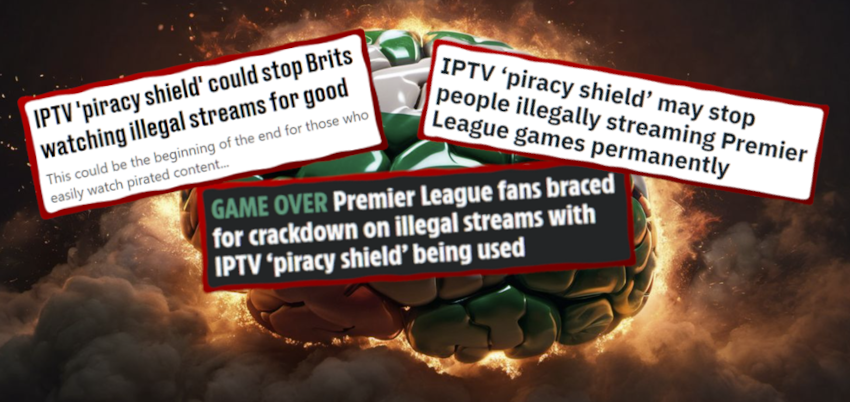-
chevron_right
Telegram Block Averted For Now But Escalating Threat is Far From Over
news.movim.eu / TorrentFreak · Friday, 29 March - 11:31 · 5 minutes
 For almost a quarter of a century a subset of internet activists have equated certain types of piracy mitigation measures to censorship and attacks on free speech.
For almost a quarter of a century a subset of internet activists have equated certain types of piracy mitigation measures to censorship and attacks on free speech.
A sampling of opinions on this controversial topic would likely place sentiments like these at the edge of a spectrum, acting as a perfect counterbalance to equally extreme positions adopted by a subset of particularly aggressive rightsholders.
An order to block Telegram in its entirety, handed down last week by a court in Spain, gave the latter group the kind of victory dreams are made of in the anti-piracy world. It also poured credibility on the predictions of ‘extremist’ internet activists who have been warning about this type of mission creep for over 20 years.
Blocking Order Suggested No Conflict
The order handed down by Judge Pedraz appeared in public last weekend and despite its gravity, contains no sign that the Judge felt conflicted by the matter at hand.
Anti-piracy group EGEDA, Mediaset España, Atresmedia, and Movistar Plus, filed a request for the whole of Telegram to be blocked across the whole of Spain, because information requested from Telegram to support a piracy investigation hadn’t been provided.
The Judge responded by metaphorically ticking the boxes marked ‘necessary’ and ‘proportional’, regardless of the eight million non-infringing Spanish users of Telegram set to be negatively affected.
The notion that the rightsholders somehow misunderstood the nature of Telegram and had failed to comprehend the chaos their request would cause, can be reasonably ruled out. That leaves a pair of unpalatable scenarios to support the Judge’s decision to grant the blocking order: a) no knowledge of the platform and therefore no basis to consider the consequences, or b) full comprehension and a decision to block anyway, regardless of the outcome.
Judge’s Statement Justifies Blocking
The Judge’s comments when suspending the blocking order, via a notice published on March 25, showed that the nature of the platform had been fully understood and the interests of rightsholders had simply taken precedence.
Subsequent comments on the suspension of the blocking measures indicate that the referral to the General Commissioner of Information, to assess what effect blocking might have on millions of Spanish users, was never part of the plan.
The statement begins fairly defiantly; continued infringement on Telegram justified the adoption of precautionary measures and due to the lack of cooperation from the Virgin Islands’ authorities where Telegram is based, blocking the entire platform was the only possible measure that could stop further infringement.
The measure was considered proportional to the seriousness of the conduct, it was deemed necessary, and importantly, completely legal.
But Was it Really Proportional?
After the existence of the blocking order was published “in all types of media” the statement concedes that there could be a “possible impact on multiple users.” That raised the question of whether it really was proportional, and that’s why the General Commissioner was asked to take a look.
At that point, a few signs of how Telegram is viewed bubble to the surface, including suggestions that privacy on Telegram comes at a price.
“Well, the truth is that, without prejudice to the fact that it is known that this platform is also used for criminal activities, there are more than multiple users of all kinds (individuals, companies, civil servants, workers in general, …) who have chosen to use Telegram, providing them with ‘benefits’ that other platforms do not give. And all this under a ‘protected privacy’,” the statement continues.
“It also means that they accept that the necessary guarantees for the protection of the rights of third parties are not carried out with the exchange of personal data of users of the application. In short, cession of fundamental rights in exchange for supposed privacy.”
In summary, blocking Telegram would be “clearly detrimental” to the millions of users who use it, including having no access to a multitude of data uploaded to Telegram to which they no longer have access.
Not Proportional and Not Likely to Be Effective Either
Before agreeing that suspending the blocking order was the right thing to do, the statement notes that this is only about blocking the entire platform and whether that would’ve been a balanced response.
“It is not a question of freedom of expression or information, but whether or not the measure is proportional. And what is found, from what has been said and after issuing the order, is that the measure would be excessive and not proportional,” the statement adds. And then something unexpected.
“In addition, even the measure itself would be unsuitable because users could use a VPN network or a proxy to access Telegram and continue consuming or publishing such content, as pointed out by the General Information Commissioner.”
Similar arguments have been presented in opposition to website blocking orders all around Europe, but we’re unaware of any country that has rejected a blocking injunction on the basis that it would be ineffective.
Pressure Likely to Increase On Telegram
While the statement amounts to a short-term defeat for the rightsholders, who seem to have requested too much, too soon, their request signals where this battle of interests seems to be headed. That a Judge was in total agreement until the matter became a national controversy should be a wake-up call for the entire country.
This is fundamentally a dispute between the rightsholders and a handful of still-unidentified pirates on Telegram, who have barely been mentioned throughout this entire controversy. Instead, the focus is now on Telegram and there are clear signs that one way or another, it will be made to pay a price.
“[This] is about investigating a case for a certain crime that requires an investigation and that requires information that can only be provided by [Telegram]. As it happens with others, which do provide it,” the statement adds.
“[A]s far as we are concerned here, to be able to obtain that information will be a matter to be resolved by the legislator, which will undoubtedly do so – as required by European law – in accordance with the Digital Services Act and Digital Markets Act.”
The statement is available here (pdf, Spanish)
From: TF , for the latest news on copyright battles, piracy and more.



 For online media consumers, things have improved significantly over the years. More content is made available globally than ever before.
For online media consumers, things have improved significantly over the years. More content is made available globally than ever before. A few years ago I reached out to an academic researcher, asking for a copy of a paper that was just published in a prominent journal.
A few years ago I reached out to an academic researcher, asking for a copy of a paper that was just published in a prominent journal.